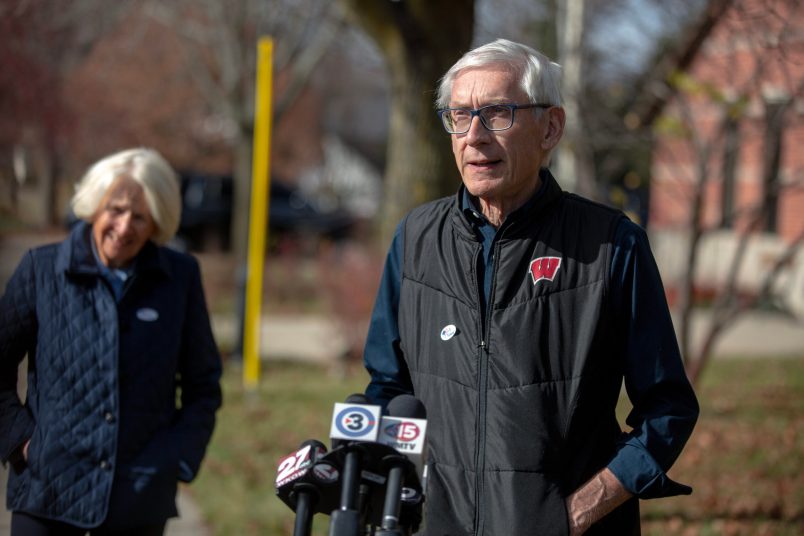Wisconsin Republicans voted to fire the state’s election chief Thursday, a lingering outgrowth of Donald Trump’s 2020 big lie campaign.
Meagan Wolfe, administrator of the Wisconsin Elections Commission since 2019, is expected to stay in her post for now, as she and many state Democrats consider the vote to be illegitimate. The elections commission did not technically put forth her nomination to stay in the job, though all six members agreed she should stay in it, per the Milwaukee Journal Sentinel.
State Republicans have used circular logic to criticize Wolfe, saying that voters’ doubt in Wisconsin elections — doubt sowed both by Trump and by many of them carrying water for him — has made her unable to do the job.
“Wisconsin Republicans’ attempt to illegally fire Wisconsin’s elections administrator without cause today shows they are continuing to escalate efforts to sow distrust and disinformation about our elections, denigrate our clerks, poll workers, and election administrators, and undermine basic tenets of our democracy, including the peaceful transfer of power,” Gov. Tony Evers (D) said in a statement, adding that he requested state Department of Justice representation for Wolfe so she can stay in her role.
Shortly after, Wisconsin Attorney General Josh Kaul (D) filed a lawsuit in state court seeking an injunction “preserving Administrator Wolfe’s status as the lawful holder of the administrator position, invested with the full authority of that office and entitled to the privileges thereof, and providing that she may continue to serve unless she is removed by the Commission.”
It’s just the latest episode in Wisconsin Republicans’ brazenly anti-democratic bender.
Rocked by the landslide election of liberal Justice Janet Protasiewicz in April on top of a series of high-profile Democratic wins in the state, they’re taking drastic measures to cling to their threatened (and manufactured) dominance.
Some Republican lawmakers have been outwardly mulling impeaching Protasiewicz since the immediate aftermath of her spring victory. They’ve reached for her characterization of the state’s maps as “rigged” for grounds to remove her. Wisconsin’s maps are widely considered to be among the most gerrymandered in the country, if not the most.
Their urgency has increased as two lawsuits before the state Supreme Court threaten the survival of the deeply manipulated maps, which virtually ensure that Republicans will keep control of the state legislature no matter the vote.
They tried a new tack earlier this week, proposing a “nonpartisan” — but still heavily weighted towards the legislature — redistricting process, seeming to experience at least temporary cold feet about the impeachment push. A poll from a progressive outfit in the state released Wednesday showed overwhelming opposition to their attempt to overturn Protasiewicz’s election.
Evers — who’s been on the receiving end of the legislators’ anti-democratic tendencies when they stripped his office of power in the lame duck session after his 2018 election — quashed the idea at once.
“Now, with the possibility that fair maps and nonpartisan redistricting may be coming to Wisconsin whether they like it or not, Republicans are making a last-ditch effort to retain legislative control by having someone Legislature-picked and Legislature-approved draw Wisconsin’s maps,” he said in a lengthy statement. “That is bogus.”
The Wisconsin Assembly intends to vote on the redistricting plan, though it’ll almost certainly meet its doom by Evers’ veto pen.
Meanwhile, Assembly Speaker Robin Vos (R) has assembled a secret panel of ex-Wisconsin Supreme Court justices to investigate the criteria for impeaching Protasiewicz, seemingly giving the legislators a few more weeks to decide what to do.
Lingering in the background of all of this is abortion, a procedure at extreme risk in the state from a pre-Roe law. Following a Dane County judge’s ruling, Planned Parenthood announced Thursday that it would resume abortion care in Wisconsin. Protasiewicz has made it clear that she supports abortion rights, and a liberal-majority state Supreme Court would likely rule against the 1849 law.



